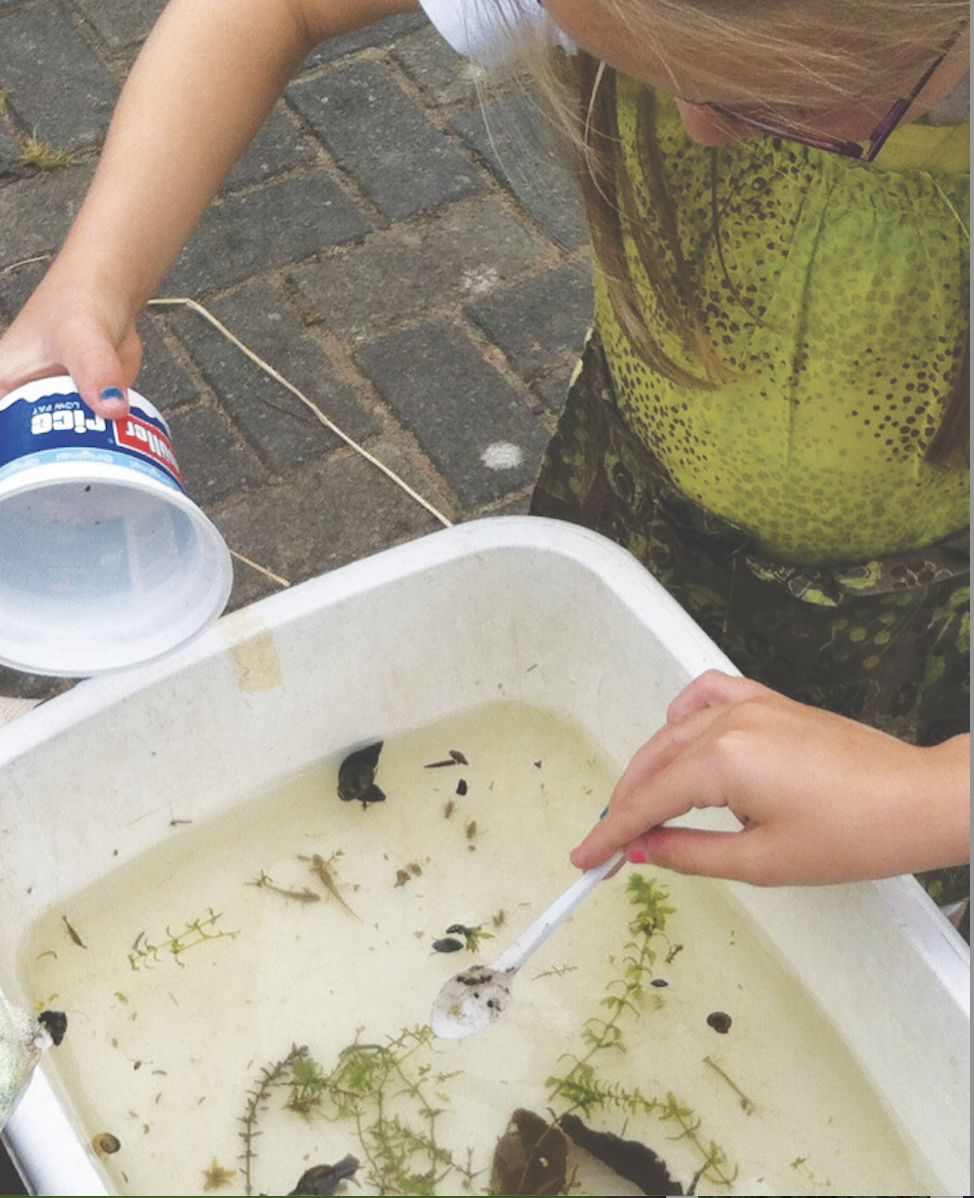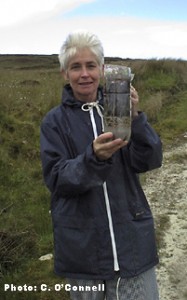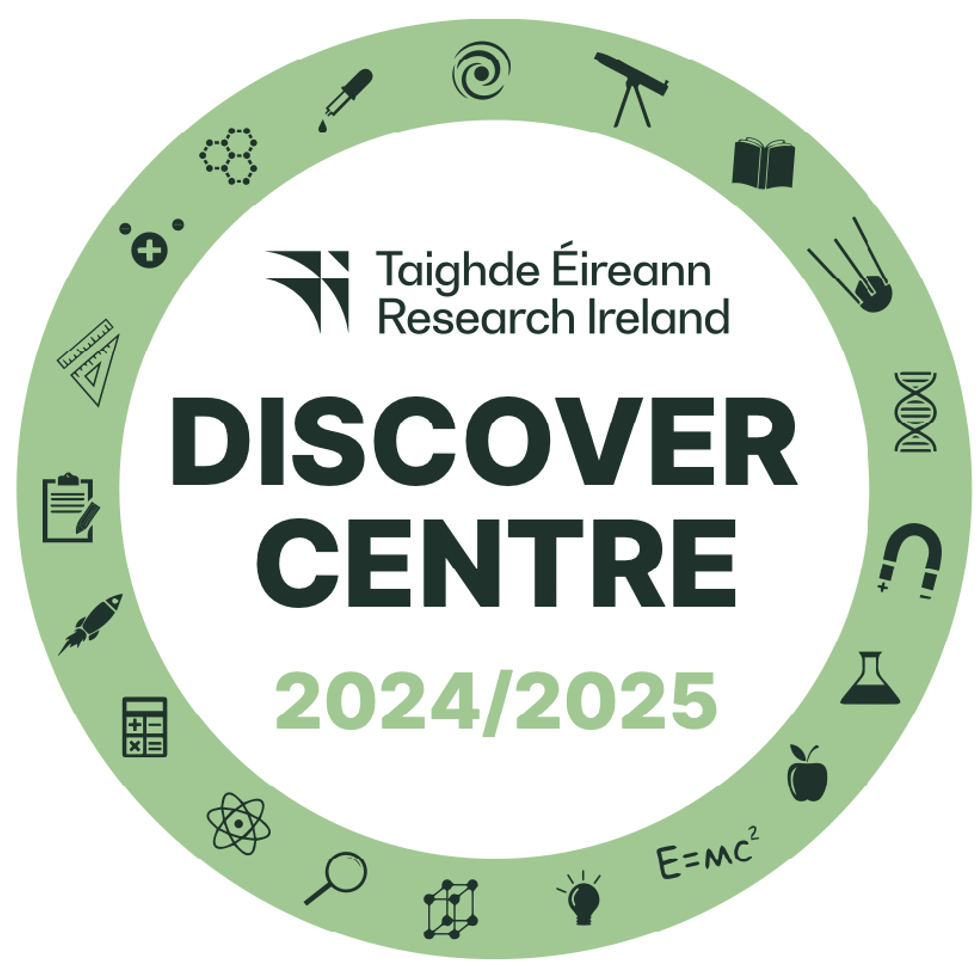 The Bog of Allen Nature Centre offers a choice of two Curious Minds Primary Science and Maths activities at the Bog of Allen Nature Centre. The first option is the ‘Walk on Water Ecology of Bogs’ which includes a pond dipping session at the centre and a short walk to Lodge Bog to investigate Sphagnum Moss. The second option is a “Creepie Crawlie Safari” which includes a pond dipping session and a search for a variety of creepy crawlies in the wildlife gardens of the centre.
The Bog of Allen Nature Centre offers a choice of two Curious Minds Primary Science and Maths activities at the Bog of Allen Nature Centre. The first option is the ‘Walk on Water Ecology of Bogs’ which includes a pond dipping session at the centre and a short walk to Lodge Bog to investigate Sphagnum Moss. The second option is a “Creepie Crawlie Safari” which includes a pond dipping session and a search for a variety of creepy crawlies in the wildlife gardens of the centre.
The Discovering Primary Science & Maths activities on offer in these workshops are as follows:
Option 1 – Walk on Water Ecology of Bogs
A) Pond dipping
Pond dipping for freshwater invertebrates, paying particular attention to the pond skater – an invertebrate that inhabits the surface of the pond and is adapted to using the surface tension on the water to skate across the surface of the pond in search of prey.
- Introduction to pond life and pond habitats
- Sorting and classifying creatures caught
- Use of identification keys to name creatures caught
- Construction of food chains and webs for the pond
- Investigating surface tension – floating a paper clip on a glass of water, putting a point on a paint brush
B) Bog Moss- the bog building plant
- Observing the moving bog
- Recording the water holding capacity of bog moss
- Investigating how bog moss grows
Making a model of how a bog grows in a bottle. Collection of different colours of peat to show how the bog builds up over time in layers.
D) Bog Plants – Adaptations
- Constructing a bog plant key.
- Recording the five main groups of plants on the bog using a quadrat: heather, lichen, moss, sedge and carnivorous plants.
- Use of keys to identify the different groups of plants.
- Observing the special adaptations of carnivorous plants to enable them to trap insects.
Option 2 – Walk on Water Creepy Crawlies Safari
A) Pond dipping
Pond dipping for freshwater invertebrates, paying particular attention to the pond skater – an invertebrate that inhabits the surface of the pond and is adapted to using the surface tension on the water to skate across the surface of the pond in search of prey.
- Constructing a pond invertebrate identification dial
- Introduction to pond life and pond habitats
- Sorting and classifying creatures caught
- Use of identification keys to name creatures caught
- Construction of food chains and webs for the pond
- Investigating surface tension – floating a paper clip on a glass of water, putting a point on a paint brush
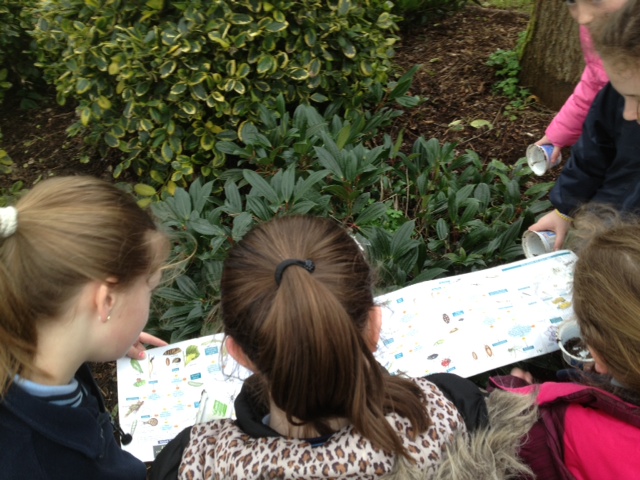
B) Creepy Crawlie Safari
Introduction to invertbrates and their habitats
Catching, identifying using identification keys and recording invertebrates
C) Insect Body Parts
Identifying and labelling the body parts of invertebrates
D) Insect Eating Plants – Food Chains
- Investigating carnivorous plants – strange predators of invertebrates in the wildlife gardens
- Guided tour of insect eating plants from around the world
Links to the SESE Science Curriculum
The “Walk on Water Ecology of Bogs” DPS workshop offered will link with the existing DPS Surface Tension and Bubbles activity sheet and extend it to a field study investigation of a bogland habitat. It also links to the following curriculum strands:
SESE Science:
Strand: Living Things
Strand Unit: Plant and Animal Lifes
- Observe, identify and examine the animals and plants that live in local habitats and environments.
- Identify the inter-relationships and interdependence between plants and animals found in a habitat.
- Develop an increasing awareness of plants and animals from wider environments.
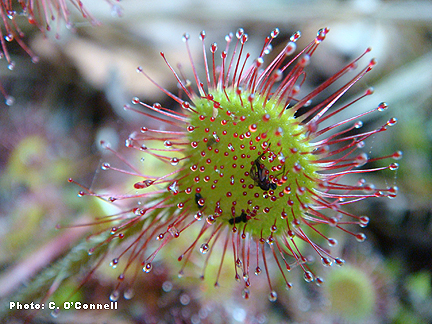
- Observe and explore some ways in which plant and animal behaviour is influenced by, or adapted to, environmental conditions.
- Construct and use simple keys to identify locally occurring species of plants and animals.
SESE Science:
Strand: Environmental Awareness and Care
Strand Unit: Environmental Awareness
- Identify positive aspects of natural and built environments through observation, discussion and recording.
- Explore some examples of the inter-relationship of living and non-living aspects of local and other environments.
SESE Science:
Strand: Energy and Forces
Strand Unit: Forces
Curriculum skills to be developed:
The skills to be developed will include: observing, investigating, exploring, recording, making, classifying.
About Your Visit
Your visit will be a three hour visit and students will be lead by experienced tutors. It is requested that groups of 10 students have a minimum of 1 visiting adult present at all times during the visit.
Facilities at the Bog of Allen Nature Centre
Students should bring the following items with them;
- Notebook and pencils
- Wear warm old cloths
- Wellies or strong footwear
- Insect repellent
- Suncream
Payment method
The price per student is €6.50 for a three hour visit to the centre with a maximum of 90 students per trip. The total cost is payable on the day of your visit by credit card, cash or cheque. If paying by cheque please make cheques payable to the Irish Peatland Conservation Council.
Visit Primary Science to complete an online teacher evaluation and to download certificates for your students
If your school would like to participate in this programme please complete the booking form below.
Contact Us
The Irish Peatland Conservation Council can be contacted at the Bog of Allen Nature Centre, Lullymore, Rathangan, Co. Kildare, Ireland. Tel: +353-45-860133; Email: bogs@ipcc.ie

